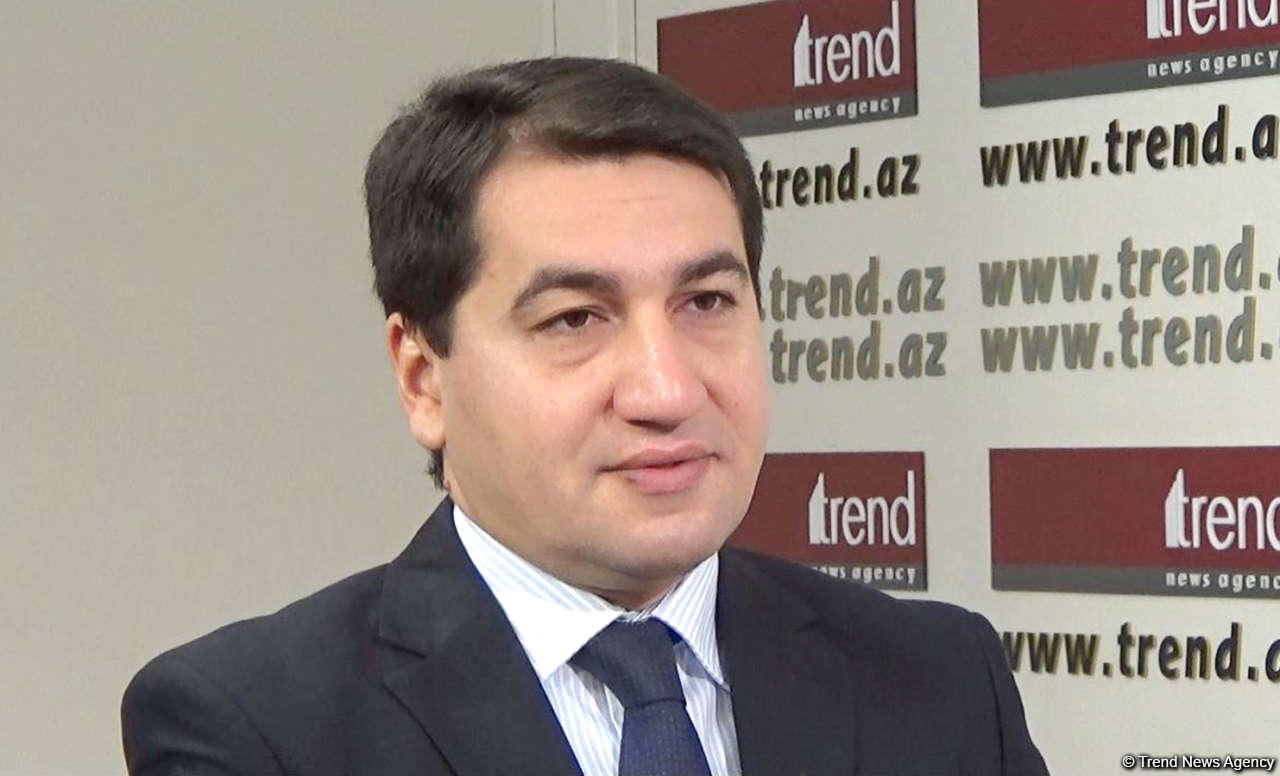Baku, Azerbaijan, Feb. 27
By Ali Gasimov – Trend:
The Armenian leadership is responsible for the crime against humanity - the Khojaly genocide, spokesman of Azerbaijan’s Foreign Ministry Hikmat Hajiyev said in an interview with TRT World.
“The Khojaly genocide is a truly tragic event. The genocide was committed with the direct involvement of the Armenian armed forces and with the support of the 366th Soviet motorized rifle regiment stationed in Khankendi. For the Azerbaijani people this is a terrible event, but the most important is that we do not ask for revenge. We just want justice. Azerbaijan is a multicultural country, and we are proud of our tolerance. But at the same time, this can not be tolerated, because this is a crime, and the crime must be punished,” he said.
Hajiyev noted that the current political, military leadership of Armenia took a direct part in the Khojaly genocide.
“They commanded this operation. The Armenian President, as well as the leaders of the separatist regime established in the occupied territories, directly participated in this operation. Also soldiers, commanders and some paramilitary groups in Armenia participated in this. They knew that there were civilians in Khojaly, 7,000 civilians. And despite this they attacked the city using heavy artillery, tanks and missiles. If we apply international humanitarian law, then Armenia as a state is responsible for the Khojaly genocide. And also if to apply the generally accepted law, then some individuals of the Armenian leadership are responsible for this crime against humanity,” the spokesman said.
The conflict between the two South Caucasus countries began in 1988 when Armenia made territorial claims against Azerbaijan. As a result of the ensuing war, in 1992 Armenian armed forces occupied 20 percent of Azerbaijan, including the Nagorno-Karabakh region and seven surrounding districts.
On Feb. 25-26, 1992, the Armenian armed forces, together with the 366th infantry regiment of Soviet troops, stationed in Khankendi, committed an act of genocide against the population of the Azerbaijani town of Khojaly. As many as 613 people, including 63 children, 106 women and 70 old people were killed in the massacre. Eight families were totally exterminated, 130 children lost one parent and 25 children lost both. Some 1,275 innocent residents were taken hostage, while the fate of 150 people still remains unknown.
The 1994 ceasefire agreement was followed by peace negotiations. Armenia has not yet implemented four UN Security Council resolutions on withdrawal of its armed forces from the Nagorno-Karabakh and the surrounding districts.






